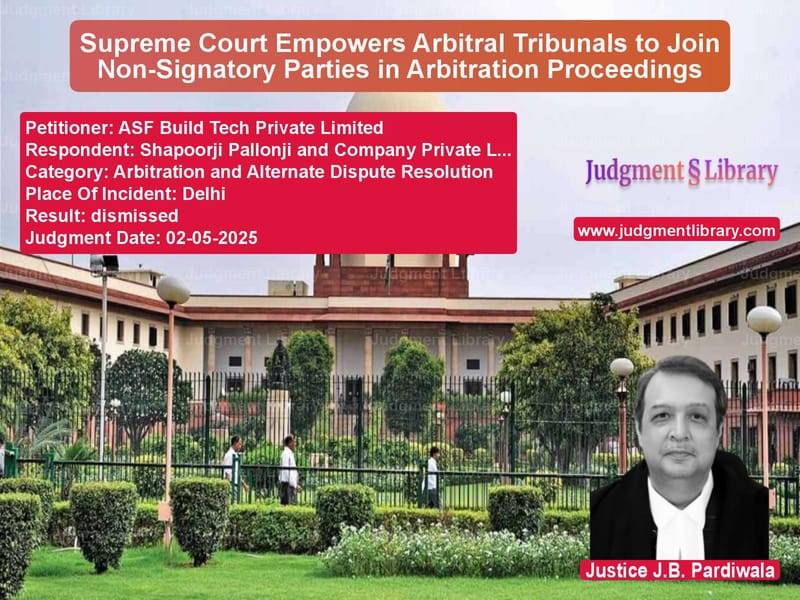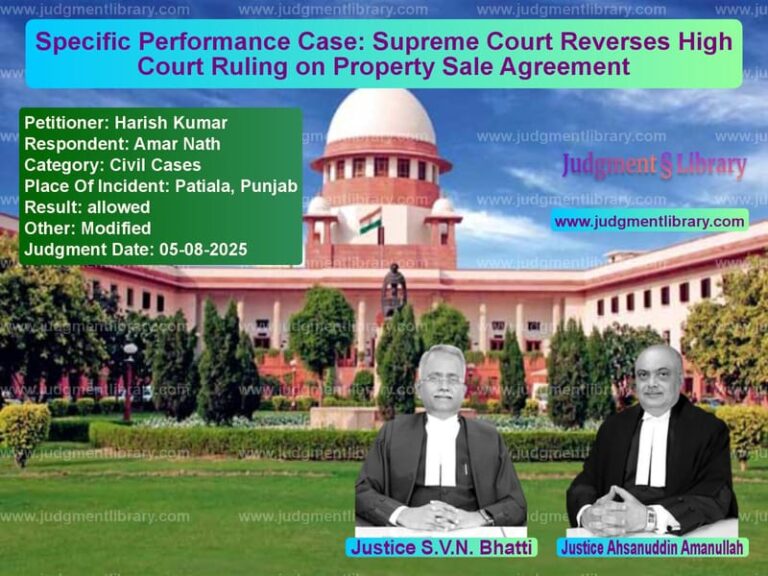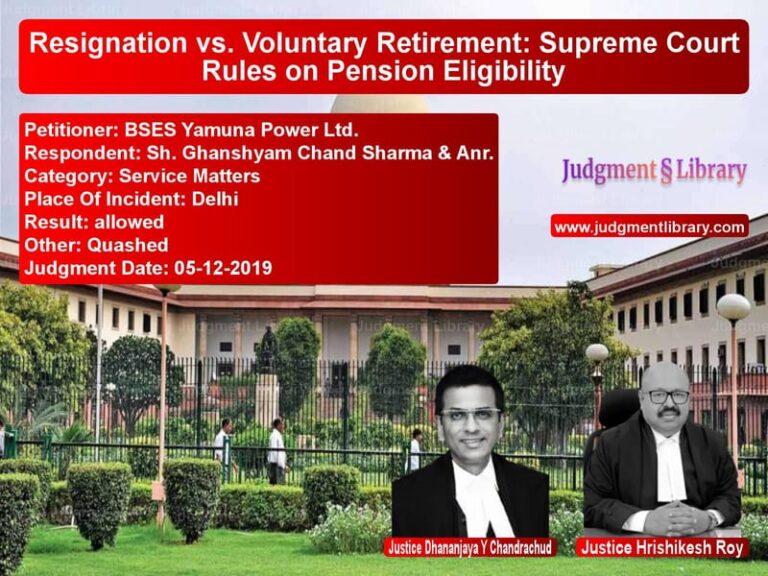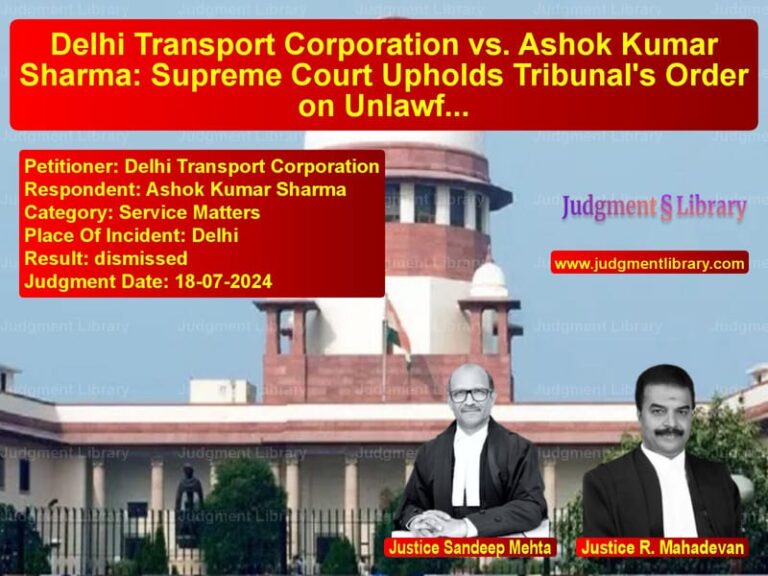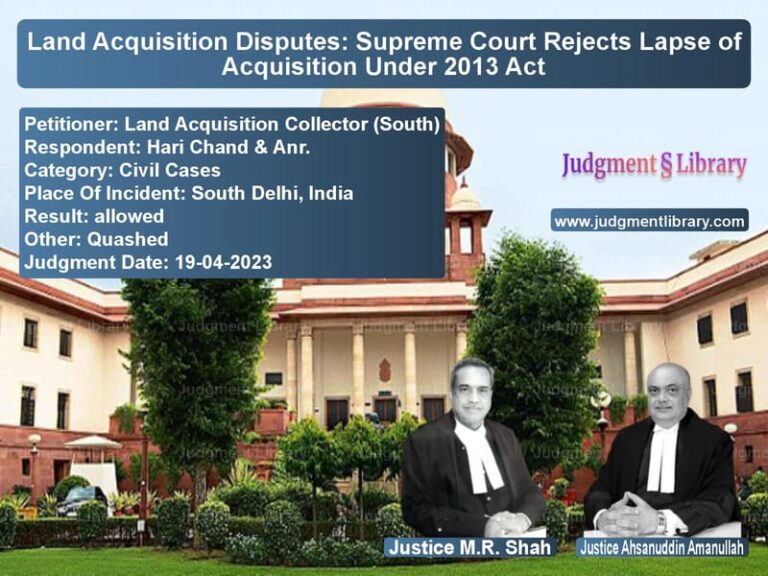Supreme Court Empowers Arbitral Tribunals to Join Non-Signatory Parties in Arbitration Proceedings
In a landmark judgment that clarifies a long-standing legal controversy, the Supreme Court of India has ruled that arbitral tribunals possess the inherent authority to implead or join non-signatories to arbitration agreements. The decision in ASF Build Tech Private Limited vs. Shapoorji Pallonji and Company Private Limited resolves a significant conflict among various High Courts and establishes a clear legal framework for multi-party disputes in arbitration.
The case originated from a complex commercial dispute involving multiple companies within the ASF Group. Shapoorji Pallonji and Company (SPCPL) had initiated arbitration proceedings not only against the signatory to their contract but also against other group companies – ASF Buildtech Pvt Ltd (ABPL) and ASF Insignia SEZ Pvt Ltd (AISPL) – who were not signatories to the arbitration agreement. The core legal question was whether an arbitral tribunal could join these non-signatory parties to the arbitration proceedings.
The appellant, ASF Buildtech Pvt Ltd, argued vehemently against being subjected to arbitration. “There is not even a shred of material to show any involvement whatsoever, much less prima facie, regarding the involvement of ABPL in the negotiation, performance or termination of the subject agreements which are the subject matter of the arbitral proceedings,” they contended. They emphasized that merely being a holding company or part of the same corporate group should not automatically make them party to arbitration, warning that “if such contention is accepted, every holding company will have to be necessarily arrayed as a ‘veritable party’ which is completely against the fundamental principle of separate corporate personality.”
On the other side, Shapoorji Pallonji and Company presented a different picture of the business reality. They argued that “the entire negotiation, performance and termination of the Works Contract was with the ASF Group, though in the name of its SPV, AISPL” and that “BCSPL/AISPL/ABPL were acting as single economic unit and were together directly, substantially and actively involved in the negotiation and performance of the subject Works Contract.” They pointed to common management, shared email domains, and financial interdependencies as evidence that the ASF Group functioned as a unified entity.
The Supreme Court’s analysis began by acknowledging the contradictory views that had prevailed across different High Courts. Some courts had held that arbitral tribunals lacked the power to implead non-signatories, while others had recognized such authority. This divergence had created significant uncertainty in commercial dispute resolution.
The Court traced the evolution of the law on this subject, starting from the Chloro Controls decision in 2013 through the more recent Cox and Kings judgments. In a crucial clarification, the Court noted that earlier misconceptions about the arbitral tribunal’s powers had now been resolved. “The legal basis for the application of the ‘Group of Companies’ doctrine lies in the very definitions of ‘party’ and ‘arbitration agreement’ under Section(s) 2(1)(h) and Section 7, respectively, and not in the expression ‘claiming through or under’ in Section(s) 8 and 45 of the Act, 1996,” the Court explained.
One of the most significant aspects of the judgment is the Court’s clear articulation that the question of whether a non-signatory is bound by an arbitration agreement involves a fact-intensive inquiry that is best suited for determination by the arbitral tribunal. “The test for determining the applicability of the ‘Group of Companies’ doctrine is intrinsically factual in nature, necessitating a close and context-specific inquiry,” the Court observed. “The arbitral tribunal is the more appropriate and competent forum to adjudicate upon the issue of whether a non-signatory is bound by the arbitration agreement, as it has the innate advantage of going through all the relevant evidence and pleadings in greater depth and detail than the referral court at the pre-reference stage.”
The Court made a crucial distinction between determining the “existence” of an arbitration agreement and determining whether a non-signatory is bound by it. “The determination of the ‘existence’ of an arbitration agreement, by contrast, is confined to examining the formal validity of the arbitration agreement or the arbitration clause itself… It does not require delving into the broader legal relationships emerging from the underlying contractual framework,” the Court clarified.
In what may be the most impactful part of the judgment, the Court unequivocally stated: “From the above exposition of law, it can be seen that there is nothing within the scheme of the Act, 1996, which prohibits or restrains an arbitral tribunal from impleading a non-signatory to the arbitration proceedings on its own accord.” The Court emphasized that this power stems from the broad jurisdiction conferred upon arbitral tribunals under Section 16 of the Arbitration Act to rule upon their own jurisdiction.
The Court also provided important safeguards to prevent potential misuse of this power. Arbitral tribunals must adhere to principles of natural justice, afford the non-signatory a fair opportunity to raise objections, determine the issue at the earliest possible stage, and impose costs where parties are vexatiously impleaded. “The tribunal should comply with the requirements of principles of natural justice such as giving opportunity to the non-signatory to raise objections with regard to the jurisdiction of the arbitral tribunal,” the Court directed.
This judgment represents a significant step towards modernizing India’s arbitration framework and aligning it with international best practices. By empowering arbitral tribunals to handle complex multi-party disputes efficiently, the Supreme Court has strengthened India’s position as an arbitration-friendly jurisdiction while maintaining necessary safeguards to protect the rights of all parties involved.
The Court’s approach balances the consensual nature of arbitration with the practical realities of modern commercial transactions, where business arrangements often involve multiple entities within corporate groups. This decision will likely have far-reaching implications for how corporate groups structure their business operations and dispute resolution mechanisms in India.
Petitioner Name: ASF Build Tech Private Limited.Respondent Name: Shapoorji Pallonji and Company Private Limited.Judgment By: Justice J.B. Pardiwala.Place Of Incident: Delhi.Judgment Date: 02-05-2025.Result: dismissed.
Don’t miss out on the full details! Download the complete judgment in PDF format below and gain valuable insights instantly!
Download Judgment: asf-build-tech-priva-vs-shapoorji-pallonji-a-supreme-court-of-india-judgment-dated-02-05-2025.pdf
Directly Download Judgment: Directly download this Judgment
See all petitions in Arbitration Awards
See all petitions in Commercial Arbitration
See all petitions in Arbitration Act
See all petitions in Dispute Resolution Mechanisms
See all petitions in Enforcement of Awards
See all petitions in Judgment by J.B. Pardiwala
See all petitions in dismissed
See all petitions in supreme court of India judgments May 2025
See all petitions in 2025 judgments
See all posts in Arbitration and Alternate Dispute Resolution Category
See all allowed petitions in Arbitration and Alternate Dispute Resolution Category
See all Dismissed petitions in Arbitration and Alternate Dispute Resolution Category
See all partially allowed petitions in Arbitration and Alternate Dispute Resolution Category

